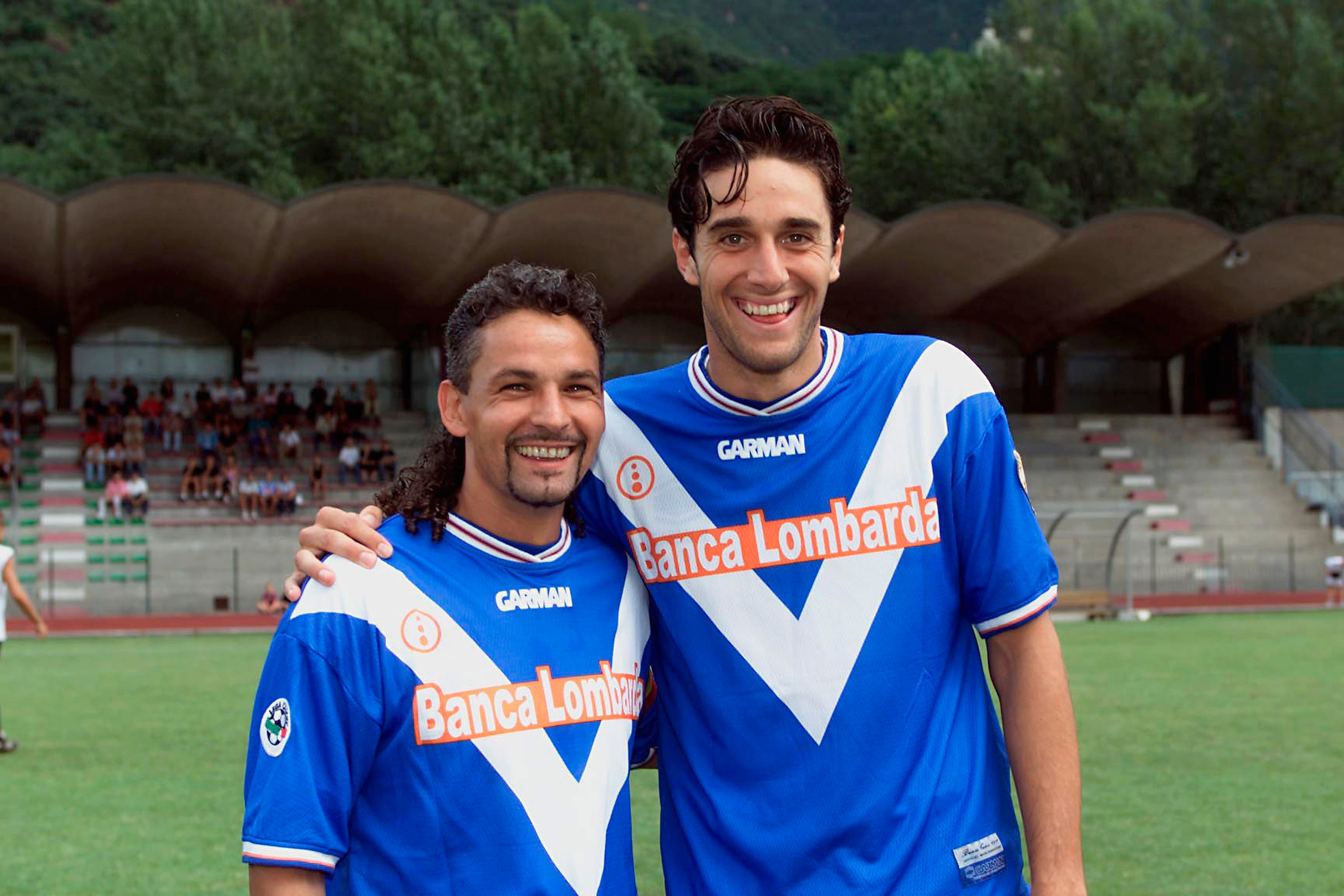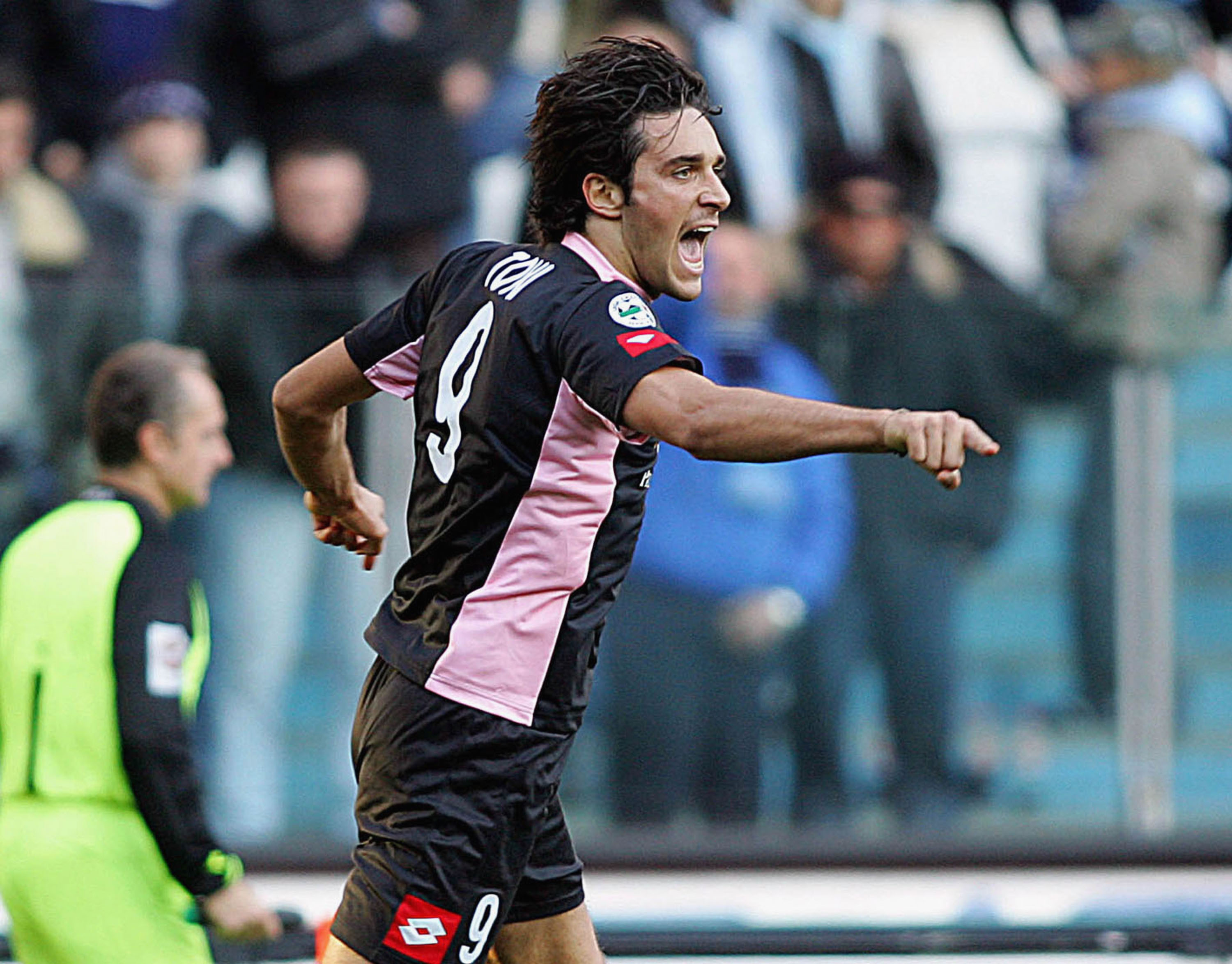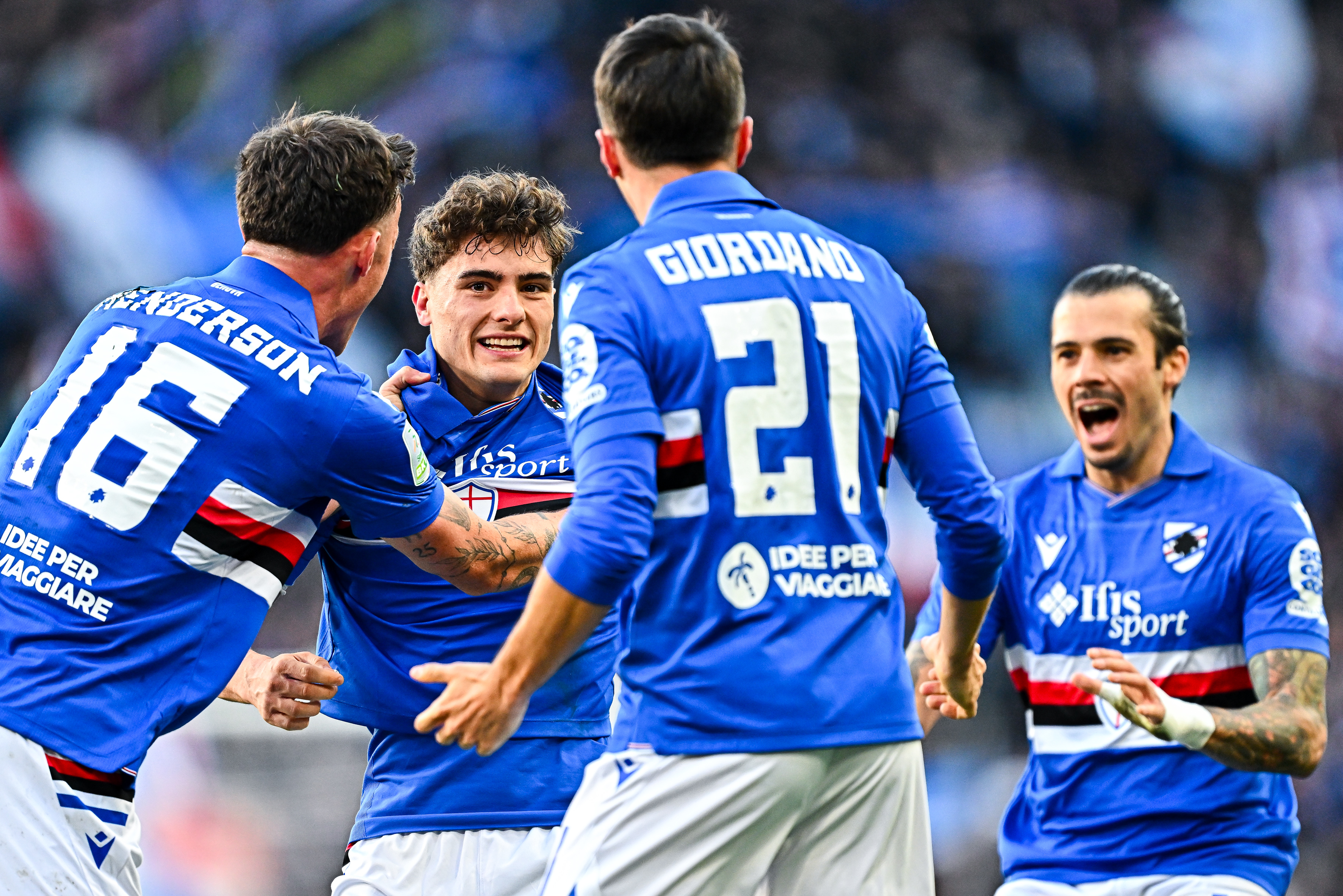
Luca Toni stood on the hallowed turf of the Olympiastadion in Berlin, clutching the World Cup trophy as a sea of photographers surged around him.
A broad, contented smile spread across his face before he pressed his lips against the glittering prize. This moment marked the culmination of an extraordinary career arc.
Just three years earlier, Toni had been on the verge of slipping into obscurity. Struggling for form and fitness, he had taken the courageous step of dropping into Italy’s second tier in a bid to reignite his stalling career.
Now, before the eyes of the world, he had taken the definitive step on his journey from the realm of provincial bomber to global icon, his rise a testament to an unyielding determination to prove himself.
Toni’s story began on the unassuming playing fields of Emilia-Romagna, where the 17-year-old striker was thrust into Italy’s third tier with his hometown club, Modena. He was raw, physically unrefined, but brimming with potential; it was clear even then that Toni possessed something special.
His breakthrough moment came at Lodigiani in 1998 when a more chiselled, confident version of Toni emerged. At 21, he had grown into his towering frame and found his stride, averaging a goal every two games, prompting a move to Serie B side Treviso.
It was a seamless transition for Toni. A 15-goal tally saw him appear amongst the top goal scorers in the second tier. His reward at the end of the season was another transfer, this time to fulfil his dream of playing in Serie A.
Newly promoted Vicenza – his sixth club in as many seasons – gave the nomadic forward a chance to test his mettle against the finest defences Italy had to offer.
Toni possessed that priceless, innate quality for a forward; a ruthless instinct in front of goal. Combined with his brutish strength and formidable aerial presence, he was a menacing opponent.
Yet there was so much more to his game than physicality. Despite appearing at times ungainly, Toni was deceptively nimble. His fluid movement and impeccable timing made him a constant threat in the box, always in the right place at the right time – a forward’s dream and a defender’s nightmare.
Even in a struggling Vicenza side, Toni’s brilliance shone through. He notched 9 goals that season, including a trademark strike that sealed a memorable victory over the mighty AC Milan.
In a moment that encapsulated his qualities, Toni made a perfectly timed run in behind the centre-back, affording him enough space to take a lofted pass on his chest. Just as the ball threatened to escape his reach, he extended a telescopic leg to expertly flick it beyond the advancing goalkeeper.
Toni’s next assignment was with Brescia, who saw his clinical brawn as the perfect complement to the creative beauty of Roberto Baggio. In Le Rondinelle’s attacking line-up, Toni thrived. His thirteen-goal haul in 2001-02 included a devastating hat-trick – his first, though certainly not his last in Serie A – in a 3-0 rout of Perugia.

For the first time in his senior career, Toni stayed put that summer. With this newfound stability and the return to fitness of his creative maestro, Baggio, expectations were high. At 25, Toni was poised to take his game to new heights during the 2002-03 campaign. That was before fate cruelly intervened.
A serious knee ligament injury sustained in pre-season obliterated the first half of Toni’s season. When he returned to the starting line-up in the New Year, something had changed.
He cut a forlorn figure as, for the first time in his career, he struggled to find the net. Toni’s near-exponential rise had abated and his stock was now falling. Just what kind of a toll had the injury taken on the player?
When Serie B Palermo came calling with a generous offer for Toni in summer 2003, it was a deal that Brescia could not ignore. After clawing his way from Serie C to Serie A, Toni found himself at a career crossroads, returning to the second tier to prove himself all over again.
The arrival of a charismatic, swashbuckling centre forward sent waves of anticipation through the Sicilian city. But the half-life of this hoopla proved short-lived as Toni’s lacklustre start to life in a pink jersey yielded just a single goal in his first 9 outings.
Toni earned himself breathing space during a profitable week in November, netting 5 goals in 8 days. While his scoring record was proficient rather than prolific, an unexpected inflexion point in Toni’s – and Palermo’s – season arrived in early January.
With the club in third place, Palermo’s notoriously trigger-happy President, Maurizio Zamparini, disposed of the services of coach Silvio Baldini. The arrival of his successor, Francesco Guidolin, lit the blue touch paper for Toni and, consequently, Palermo.

Unleashed, Toni recorded 19 goals in the 21 games under Guidolin’s leadership as he propelled Palermo to a long-awaited promotion. His final tally of 30 goals was a modern Serie B record and a mark that remains unmatched in the two decades since.
But Toni’s impact that season went beyond mere numbers; it was defined by his style and the weight of his contributions. Thumping headers, acrobatic volleys, and clinical finishes – he was capable of it all.
When the stakes were highest, he delivered. A brace in the Sicilian derby against Catania and two more in the promotion clincher against Triestina secured his place in Rosanero hearts as they returned to Serie A.
On the strength of this spectacular season, Toni received a call-up to Marcello Lippi’s Azzurri squad for the early autumn internationals. As if scripted by the player himself, in a match hosted at Palermo’s Stadio Renzo Barbera, Toni rose from the bench to score a late winner in a crucial World Cup qualifier against Norway. His near-post finish in front of the adoring Curva Nord was nothing short of a fairytale.
Any lingering doubts about Toni’s ability to thrive in Serie A were swiftly dispelled. An opening day winner scored against Siena was followed by an equaliser against Inter at San Siro on matchday two.
Following the pattern of the previous campaign, Toni went from strength to strength. His 7 goals in the first half of the campaign were eclipsed by the 13 he netted in the return.
His chemistry with teammates Franco Brienza and Lamberto Zauli was electric; their creative flair was a perfect complement to his lethal finishing. With 20 goals to his name, Toni elevated newly-promoted Palermo to an unlikely 6th position and UEFA Cup qualification.
Yet, in the summer of 2005, Toni’s Palermitan romance came to an abrupt end. His move to Fiorentina stunned the Palermo faithful, who felt betrayed by the striker who had become their talisman. Speculation swirled, with reports suggesting Toni himself had orchestrated the move. Though he denied the claims, the relationship ended in acrimony, casting a long shadow over his Sicilian legacy.
That bitter separation served only to spur him on to greater heights in Florence. A staggering 31 goals for La Viola in 2005-06 saw him crowned Capocannoniere and confirmed his place in Marcello Lippi’s World Cup squad.
Allocated the number 9 shirt and brimming with confidence, Toni started all but one of Gli Azzurri’s games in Germany, en route to claiming football’s highest prize.
In an Italian squad overflowing with elegance and aesthetic appeal, Toni emerged as an unlikely figurehead. A towering presence with dark wavy hair and a jawline carved from granite, he was the epitome of the traditional centre-forward – powerful, imposing, and direct. His dominant performances in Germany were a final tribute to the art of the classic centre forward; a valedictory celebration of the number 9, before the cult of the false 9 took hold.
In the aftermath of the World Cup, Toni’s career returned to the nomadic rhythm of his early years. An initially prosperous spell with Bayern Munich turned sour before a series of short stays with Roma, Genoa, Juventus, Al Nasr and Fiorentina, again.
But anyone writing off Luca Toni at this point had perhaps not been paying attention. Signing for Hellas Verona at 36, he rolled back the years with a 20-goal Serie A campaign in 2013-14. Better still came the following season when he became the oldest capocannoniere in history with his 22-goal tally.
Luca Toni epitomised the old-fashioned centre forward; the last of a dying breed. An uncut diamond with a killer instinct, through force of will and an unwavering belief in his craft, he defied the odds time and again to etch his name in football history.
Watch our feature podcast on Luca Toni’s partner in crime at Brescia:
Related Articles
Related Articles
The Serie B season reaches halfway when the action returns after the winter break, with more live matches to look forward to on DCTV.
Florence is a dream destination year-round, but visiting during the winter months offers a completely different and magical experience.
We get a local take on what's hot in Cremona - where to eat and drink, sights to see and handy hints that might not be in the tourist guides.




